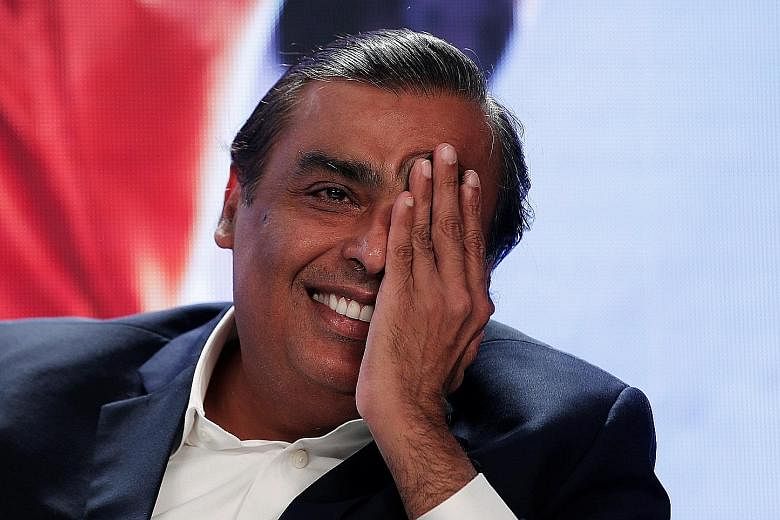India's richest man Mukesh Ambani, chairman and managing director of Reliance Industries, is known for making big moves.
He lives in the country's most expensive house - a 27-storey building in Mumbai - and presented his wife with a luxury jet on one of her birthdays.
Mr Ambani made waves when he entered the telecommunications industry last year, offering free voice calls and data prices at a fifth of market rates to consumers.
A year after his foray, Mr Ambani's Reliance Jio Infocomm - a wireless 4G service network operator - has amassed 130 million subscribers and undercut competitors to the extent that rival Sunil Mittal, chairman of Airtel, recently complained that telcos had had to write off up to US$50 billion (S$67 billion) due to Reliance Jio.
The entry of Reliance Jio in the Indian telecoms market has led to a fierce price war benefiting customers and resulting in the merger of the two biggest players in the sector, Idea Cellular and Vodafone India. Mr Ambani brushed off criticism from his competitors, saying the "big boys can afford it", when referring to their losses.
A soft-spoken but aggressive businessman, Mr Ambani is the son of Dhirubhai Ambani, the founder of Reliance Industries who started off as a small textile manufacturer.
One of four children, Mr Mukesh Ambani grew up in Mumbai, living in a modest two-bedroom home.
A teetotaller who keeps a low profile, the chemical engineer left an MBA programme at Stanford University in 1981 to join Reliance.
He returned home to help set up a polyester plant, the mainstay of Reliance, and worked closely with his father and younger brother Anil to build up the business, which went on to become a giant with stakes in oil and gas, textiles, natural resources, retail and telecoms.
After the death of their father in 2002, serious differences led to a split between the two brothers.
Since then, the elder brother, considered the more staid and conservative of the two, has taken Reliance Industries to new heights by investing in new businesses. In 2010, he built the world's largest petroleum refinery at Jamnagar.
"He is a disrupter. He is constantly trying to tackle large problems. He doesn't enter fields of business where he can't make any serious disruptions or changes in economies of scale," Mr Rishi Sahai, managing director of investment bank Cogence Advisors, said of the Reliance chairman.
Having shaken up India's telecoms sector, Mr Ambani is now eyeing the next big field: e-commerce.

